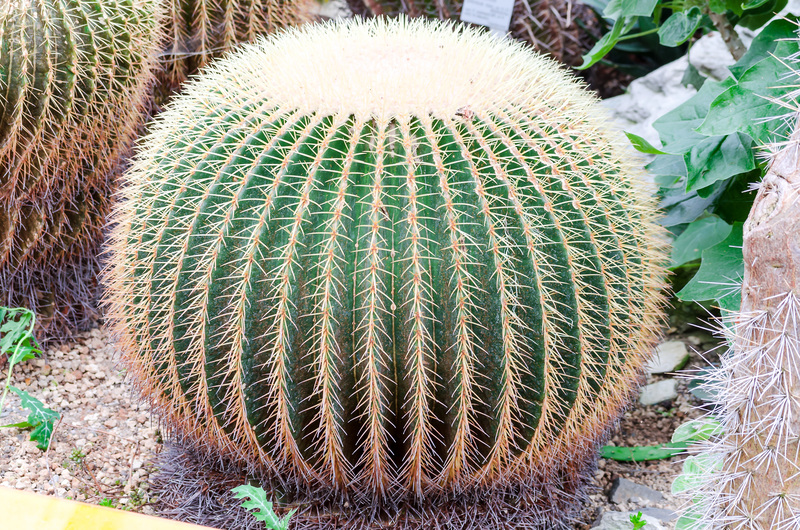Creating Fertile Grounds with Organic Waste Conversion
Posted on 05/09/2025
Creating Fertile Grounds with Organic Waste Conversion
Transforming organic waste into fertile grounds is a sustainable solution for boosting soil productivity and reducing environmental impact. Through various methods, the conversion of organic waste not only minimizes landfill overload but also rejuvenates natural resources essential for modern agriculture and gardening practices.
Understanding Organic Waste and Its Significance
Organic waste comprises biodegradable materials originating from plants and animals, such as food scraps, yard trimmings, manure, and agricultural residues. When left untreated, this waste decomposes in landfills, releasing methane -- a potent greenhouse gas. However, when processed efficiently, organic waste conversion creates opportunities for fertile soil production, supporting healthier ecosystems and more sustainable living.
- Food waste: Leftovers, fruit and vegetable peels, coffee grounds.
- Yard waste: Grass clippings, leaves, branches.
- Manure: Animal droppings rich in nutrients.
- Agricultural waste: Crop residues, spoiled grains.
Why Convert Organic Waste Into Fertile Grounds?
- Environmental Protection: Reduces landfill use and greenhouse gas emissions.
- Resource Recovery: Recovers valuable nutrients, returning them to the soil.
- Economic Savings: Cuts down on the costs associated with waste management and commercial fertilizers.
- Soil Health: Improves soil structure, water retention, and nutrient levels.
Creating fertile grounds from organic waste conversion is a double win, nourishing the earth while diverting waste from our trash systems.

Popular Methods of Organic Waste Conversion
The key to producing rich, fertile grounds from organic waste lies in the right conversion methods. Here are some of the most effective and widely practiced techniques:
Composting: Nature's Way of Recycling
Composting is the most accessible and familiar process of organic waste conversion. By collecting organic matter and managing its decomposition under controlled aerobic conditions, composting results in nutrient-rich humus perfect for garden and agricultural use.
- Aerobic Composting:
- Involves oxygen and regular turning for efficient breakdown.
- Faster and produces fewer odors.
- Vermicomposting:
- Uses worms (usually red wigglers) to process organic waste.
- Produces worm castings, an especially potent soil amendment.
- Bokashi Fermentation:
- Employs beneficial microbes in an anaerobic system.
- Processes even items like dairy and meats, typically not composted.
Biogas Production: Energy and Fertility
Biogas systems break down organic waste in the absence of oxygen (anaerobic digestion), producing methane for energy and digestate, a nutrient-rich residue.
- Biogas benefits:
- Produces renewable energy.
- Reduces odor and pathogens.
- Provides a steady output of organic fertilizer.
Mulching and Direct Application
Organic material such as grass clippings, shredded leaves, or straw can be applied directly to soil as mulch. This helps retain soil moisture, suppress weeds, and gradually enrich the ground as it decomposes.
- Benefits of mulching:
- Protects plant roots from temperature fluctuation.
- Continuous slow-release of nutrients.
The Benefits of Organic Waste Conversion for Fertile Grounds
Transforming organic waste using these techniques offers comprehensive benefits that extend beyond soil enhancement.
- Soil Enrichment: Compost and digestate return essential macro and micronutrients, improving soil fertility, structure, and biodiversity.
- Water Retention: Improved soils retain more moisture, reducing irrigation needs and helping plants endure drought.
- Pest and Disease Suppression: Healthy soil promotes robust root systems and beneficial microbe populations, naturally suppressing many pests and plant diseases.
- Reduced Need for Chemical Fertilizers: Organic matter helps cut reliance on synthetic inputs, lowering the risk of waterway pollution.
- Greenhouse Gas Reduction: By diverting organic waste from landfills, the emission of methane -- a major climate change contributor -- is significantly decreased.
Step-by-Step: How to Create Fertile Grounds with Organic Waste at Home
Starting small at home can have a large impact. Follow these guidelines for a successful organic waste to fertile soil conversion project in your yard or garden.
1. Collecting Organic Waste
- Designate bins for organic materials like vegetable peels, eggshells, coffee grounds, and yard waste.
- Avoid adding meat, oily foods, or pet waste to basic compost (unless using Bokashi or another suitable method).
2. Choosing a Conversion Method
- Composting: Set up a compost bin or pile in a shaded area. Alternate layers of green material (nitrogen-rich, e.g., food scraps) and brown material (carbon-rich, e.g., dried leaves, cardboard).
- Vermicomposting: Use a worm bin in a cool, sheltered space. Feed regularly with kitchen scraps and ensure moisture levels remain balanced.
3. Managing and Monitoring
- Turn compost regularly for aeration and faster breakdown.
- Check moisture: Compost should be as damp as a wrung-out sponge.
- Monitor for pests; cover food scraps with browns to deter flies.
4. Harvesting Fertile Compost
- After 2-6 months, compost will darken and have an earthy smell. Sift and remove large, uncomposted material to return to the pile.
- Use compost to top-dress garden beds, enrich potting soil, or fertilize lawns.
Scaling Up: Community and Industrial Organic Waste Conversion
While home composting is valuable, the potential for urban-scale organic waste conversion is immense. Community composting hubs, municipal green waste collections, and industrial biogas plants can handle vast quantities, making a significant positive impact on soil fertility and waste management.
Examples of Larger Initiatives
- Community gardens often operate shared compost piles, returning mature compost back into local plots.
- City-wide green waste pickup: Many municipalities collect curbside compostables and process them in large aerobic or anaerobic facilities.
- Corporate composting: Restaurants, supermarkets, and institutions can divert tons of food scraps yearly, often benefiting from reduced disposal costs.
Policy and Support
- Governments can encourage organic waste recycling through incentives, education programs, and compost purchase support.
- Businesses and NGOs play a vital role in advocating, innovating, and facilitating fertile ground creation via organic waste conversion solutions.
Challenges and Solutions in Organic Waste Conversion
Despite clear benefits, obstacles remain in converting organic waste into fertile grounds on larger scales.
- Contamination: Plastics and other non-biodegradable items mixed with organic waste degrade compost quality. Solution: Improve public education and refine waste sorting systems.
- Odor and pests: Poorly managed piles can attract animals and create smells. Solution: Maintain a balanced carbon-to-nitrogen ratio and cover fresh waste with browns.
- Scalability: Space, logistics, and technology access can limit large-scale projects. Solution: Public-private partnerships and technological innovation.
Innovations in Organic Waste Conversion Technology
Emerging technologies make organic waste recycling into fertile grounds more efficient and accessible:
- In-vessel composting: Enclosed systems for rapid, odorless breakdown, suited for urban and commercial sites.
- Aerated static piles: Mechanical aeration boosts composting speed and controls odors at larger facilities.
- Advanced anaerobic digestion: Improved digesters capture more biogas and generate superior fertilizer products.
- Mobile bioreactors: Bring composting and digestion capabilities directly to farms or even neighborhoods.
The Role of Digital Tools
- Apps for tracking and optimizing composting conditions assist both hobbyists and professionals in troubleshooting in real-time.
- Sensors and IoT devices gather data on moisture, temperature, and oxygen, improving batch and facility outcomes.
Best Practices for Maximizing Fertile Grounds from Organic Waste
- Layer correctly: Alternate between browns and greens for a well-balanced compost pile.
- Maintain optimal moisture: Keep the pile moist but not waterlogged.
- Ensure proper aeration: Regular turning supports aerobic microbes vital for conversion.
- Monitor parameters: Temperature should reach 130?F to 150?F (54-65?C) to kill pathogens and weed seeds.
- Harvest at maturity: Finished compost should be dark, crumbly, and free from foul odors.
- Apply generously: Use compost annually in gardens, lawns, and even potted plants to maximize benefits.

Creating Fertile Grounds: The Future of Sustainable Agriculture
As the world searches for greener, more productive food systems, organic waste conversion for soil fertility will play a crucial role. Not only does it turn potential pollutants into valuable assets, but it can also be customized for any scale -- from balcony gardens to broad-acre fields.
Expect the future to bring more integration between smart waste collection, advanced conversion technologies, and precision agriculture. With increased awareness and adoption, every banana peel and autumn leaf can contribute to restoring our planet's most precious resource -- its soil.
Conclusion: Take Action Today for Fertile Tomorrows
By embracing organic waste conversion, households, communities, and industries can create thriving, fertile grounds while protecting the planet. Start a compost bin at home, join a community garden, or support local and national policies that promote organic waste recycling into soil. The more you invest in soil health now, the more resilient and productive the future will be.
Let's work together to turn what was once considered waste into rich, fertile ground beneath our feet.
Latest Posts
Designing a Bark-Friendly Backyard for Nature Lovers
Reinvent Your Green Haven: Create Mesmerizing Garden Seating Arrangements
Unleashing the Secrets of Herb Growing

